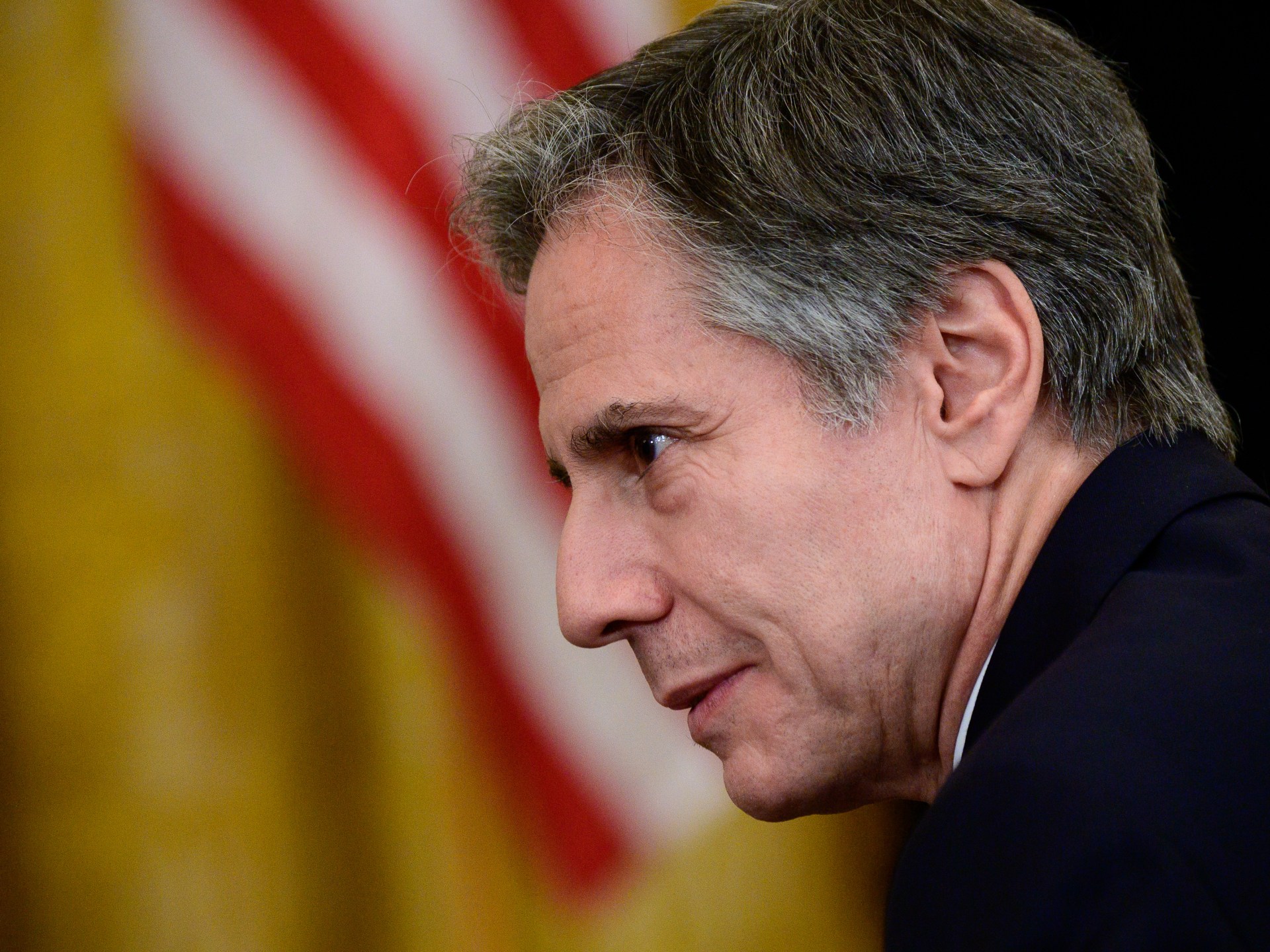Washington — Two weeks after U.S. National Security Adviser Jake Sullivan visited Saudi Arabia, Secretary of State Antony Blinken begins another visit to pursue several key issues in Washington's relations with Riyadh and the Gulf Cooperation Council (GCC).
Blinken's visit focuses on two key events, as he participates on Wednesday in the U.S.-GCC ministerial meeting. The next day, he and Saudi Foreign Minister Faisal bin Farhan co-hosted a meeting of the so-called Global Coalition to Defeat the "Islamic State of Iraq and Syria" (ISIS).
In a press briefing, Daniel Benayim, deputy assistant secretary of state for Arabian Peninsula affairs, reiterated the essence of President Joe Biden's message to the region during his visit to Jeddah last summer, saying, "We will not leave a vacuum for our strategic competitors in the region."
A broad and complex agenda
The United States has a complex and broad agenda with the GCC, based on broad and deep regional security challenges, including but not limited to Iran, regional security cooperation, energy security, sanctions enforcement and financial flows, technology security, Red Sea security, the future of relations with Syria, and others.
Giorgio Cafiero, executive director of the Center for Arab Gulf States Analysis in Washington, said that since the outbreak of the conflict in Sudan in mid-April, "the Biden administration has been working closely with Saudi Arabia and the UAE" in response to this crisis.
Speaking to Al Jazeera Net, Cafiero added, "It is safe to assume that US-Saudi cooperation towards Sudan will be one of the important issues that Blinken will discuss with his counterparts in the Kingdom."
In his speech yesterday to the conference of AIPAC (the largest organization of the Israel lobby in the United States), Blinken lowered expectations regarding the file of Saudi-Israeli relations, amid pressure on the Biden administration to pressure Riyadh to accept the start of long-awaited steps in Washington and Tel Aviv.
Iran's dilemma and maritime and regional security
Blinken's visit comes days after Iran announced plans to create a joint naval force with Saudi Arabia, the United Arab Emirates, Oman, Qatar, Bahrain, Iraq, India and Pakistan, and nearly 3 months after Riyadh and Tehran restored ties in a deal brokered by China.
"The United States will want to talk about maritime security in the Gulf and the Red Sea, especially with regard to air and missile defense and everything related to Iran, and the new containment and deterrence system that the United States has been developing against Tehran since the collapse of the JCPOA indirect nuclear negotiations," said Hussein Ibish, senior researcher at the Arab Gulf States Institute in Washington.
Speaking to Al Jazeera Net, Abish pointed out that "Washington's goal is to transform what is within the bilateral arrangements into a tangle of regional understandings that produce a very loose type of integrated security relations, de facto."
China in the Gulf
In recent weeks, there have been many signs of reservations about any security cooperation between Beijing and its Gulf allies. The UAE's jet deal has already been stalled because of its strong ties with Chinese tech and telecoms giant Huawei.
Washington understands that it cannot prevent China from developing broader relations with the GCC that go beyond buying and selling energy as it emerges as a global player. The goal is therefore to ensure that these new relationships do not threaten U.S. strategic hegemony in the region.
John Alterman, head of the Middle East program at the Center for International and Strategic Policy in Washington, acknowledged that the U.S. goal is not to get China out of the Gulf or confront it in the region, but to ensure that Beijing's increased involvement in the Gulf is constructive and does not undermine the security of the United States and its partners.
Speaking to Al Jazeera Net, Alterman added that "China is the main trading partner of the United States above all, and no one is suggesting that there is anything wrong with increasing trade. But when it comes to the possibility of opening the door to a Chinese security presence or surveillance capabilities, the U.S. view is different."
Cafiero agrees with Alterman's argument: "The U.S. administration has serious concerns about Sino-Saudi relations and how deepening they are. The concerns are not related to the kingdom's economic and trade relations with Beijing, but rather to the defense and security dimensions of their relations. The Biden administration has put pressure on Riyadh and Abu Dhabi to avoid approaching China in these areas."
The senior fellow at the Arab Gulf States Institute in Washington says the United States has made it clear that there are "red lines for what it will tolerate, which would be practically anything that does not give Beijing a new strategic foothold in the region."
"What is not on the table, then, are things like signal intelligence capabilities, sensitive technology transfers, dual-use facilities that could have military applications for the Chinese navy or other military or security components, and other similar measures that seem to facilitate Beijing's emergence as a regional player that goes beyond normal and normative relations between countries," Abish said.
A Joint Saudi-American Vision
On the other side of the discussion over the visit in Washington, Brian Katulis, vice president of the Middle East Research Institute, called for Washington and Riyadh to formulate a "Vision 2023" for their bilateral relationship, to suit the Kingdom's current efforts to reshape its economic and social agenda at home.
"Blinken's visit this week provides another opportunity for the United States to work with Saudi Arabia to forge a new bilateral relationship that addresses common threats and seizes new opportunities, all while keeping a channel open to discuss matters on which the two countries disagree," Katulis said.

